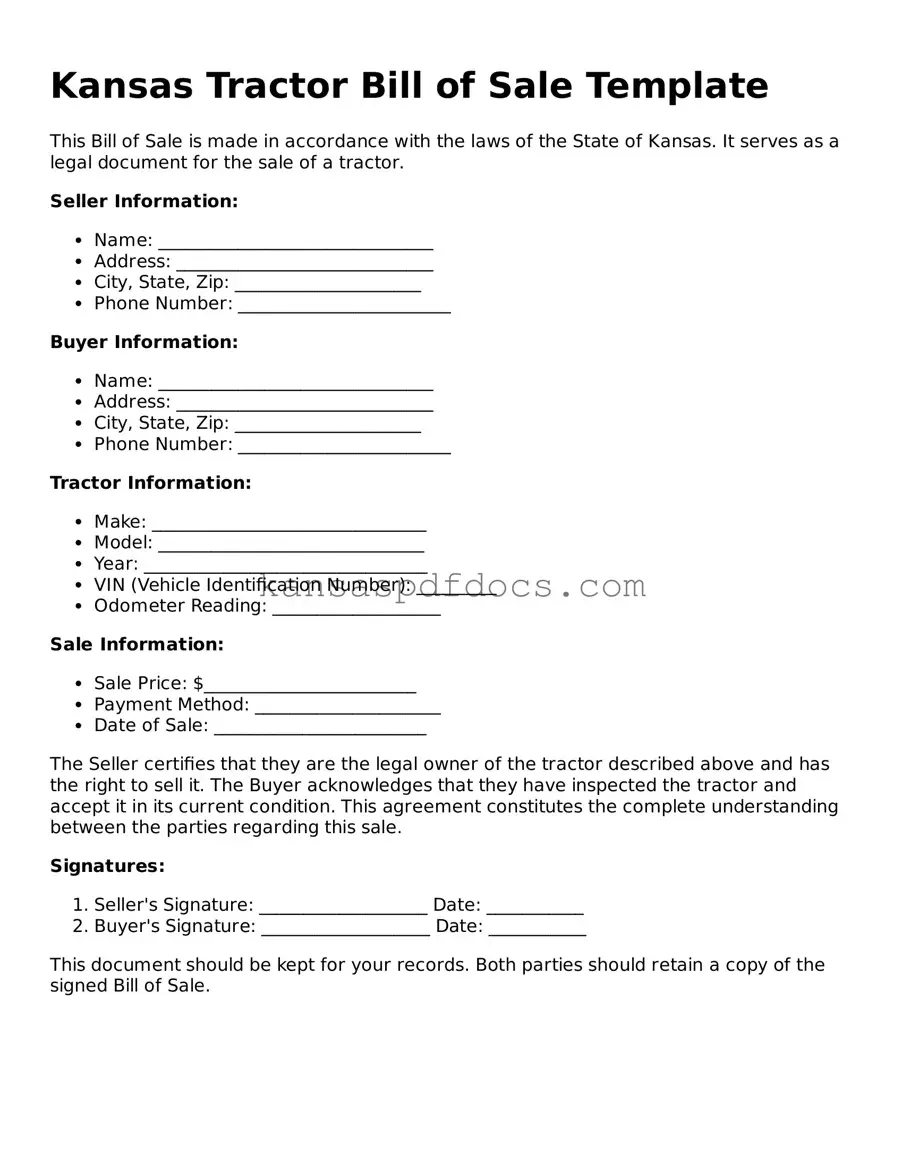Valid Tractor Bill of Sale Template for Kansas State
The Kansas Tractor Bill of Sale is a legal document that records the transfer of ownership of a tractor from one party to another. This form serves as proof of the transaction, detailing essential information about the buyer, seller, and the tractor itself. Understanding its components is crucial for ensuring a smooth and lawful transfer of property.
Access This Form Now

Valid Tractor Bill of Sale Template for Kansas State
Access This Form Now
Your form isn’t ready yet
Edit and finalize Tractor Bill of Sale online without printing.
Access This Form Now
or
Get PDF Form
